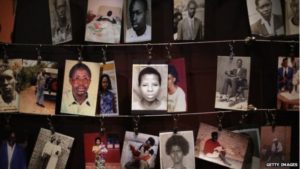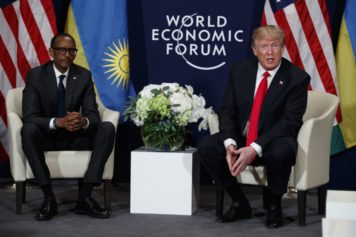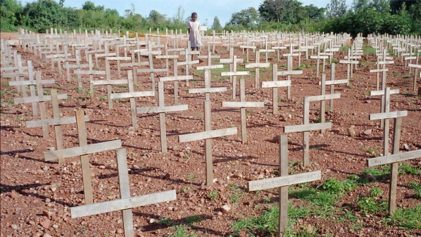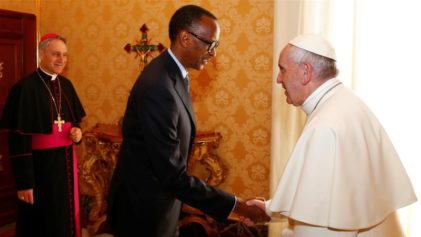
The French decision Tuesday concerns documents in the Elysee presidential palace relating to Rwanda between 1990 and 1995, spanning the genocide which claimed at least 800,000 lives.
“The president had announced a year ago that France must provide proof of transparency and facilitate remembrance of this period,” a source in French President Francois Hollande’s office said.
Rwandan Minister of Justice Johnston Busingye said Wednesday that Paris should ensure that all the documents are released.
“The Franco-Rwanda political, diplomatic and military relationship during the 1990-1995 period has been a tightly guarded domain,” Busingye told AFP.
“Perhaps the goings on at the time will finally be opened up, and it will shed light on the many dark and grey questions still unaddressed. One only hopes that the declassification is total.”
The papers, which include documents from diplomatic and military advisors as well as minutes from ministerial and defense meetings, will be available to both researchers and victims’ associations, the French presidency said.
Ties between France and Rwanda are strained, with Rwandan President Paul Kagame accusing Paris of complicity in the genocide because of its support of the Hutu nationalist government that carried out the mass slaughter, mainly of ethnic Tutsis.
Paris has repeatedly denied the accusations and insists that French forces had worked to protect civilians. Relations between both countries were completely frozen from 2006 to 2009.
The president of Ibuka, Rwanda’s genocide survivors’ association, called for documents to be made available as soon as possible.
“Let them do it and do so quickly, it is interesting, it is good,” said Jean-Pierre Dusingizemungu, saying it could shed light on France’s role and actions through the period of the genocide.


